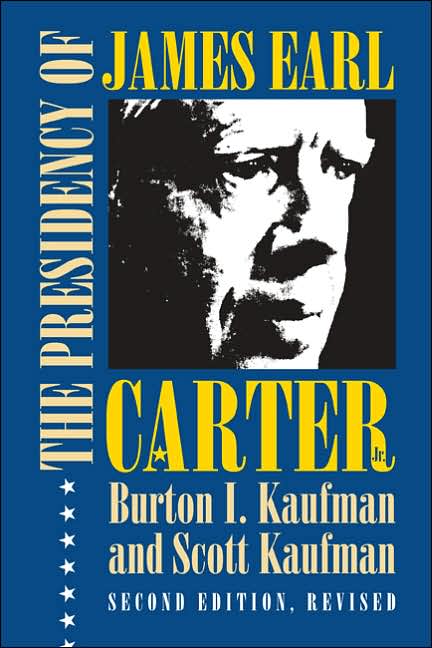Why Giuliani Had to Backpedal About His Wife's Role as First Lady
When Republican presidential candidate Rudy Giuliani told Barbara Walters on the show “20/20” on March 29 that he would be open to his wife, Judith, attending cabinet meetings, it was an expression of how he viewed his relationship with her. “If she wanted to sit in on cabinet meetings,” stated Giuliani, “that would be something I would be very, very comfortable with.” To many Americans, however, the presence of the first lady – an unelected, unappointed official – sitting in on gatherings of the most powerful people in the country, all of whom had been elected or appointed by the president or the Senate, and who made decisions affecting the nation’s domestic and foreign policies, was too much. The ensuing flak prompted Giuliani to tell reporters the next day that it was unlikely Judith would join gatherings of the cabinet.
This is not the first time there has been a brouhaha over a first lady’s (or potential first lady’s) presence at cabinet meetings. In 1978, President Jimmy Carter invited his wife, Rosalynn, to come to gatherings of the cabinet. He made the suggestion after Rosalynn became upset with reports in the media that she felt were unfairly critical of the administration (though she never specified what they were). By coming to the cabinet meetings, the president told her, she could gain insight into the workings of the administration and the accuracy of stories in the press.
Mrs. Carter did not participate in the meetings. Rather, she sat in the back – though reportedly she occupied Vice-President Walter Mondale’s seat one day while he was out of town – and took notes. Yet her very presence created an uproar. Mrs. Carter had her defenders who saw nothing wrong with her involvement. The term “pillow talk” has been used here: the idea that it is natural for spouses, be them next door neighbors or the president and first lady, to discuss issues between themselves and seek advice from one another. Those who took a more traditional view of the first lady’s role, however, argued that Mrs. Carter had crossed the line of propriety. It was one thing for the president and his wife to have discussions among themselves in their private quarters; it was another for the first lady to join a meeting of those who make country’s policy. Whereas elected officials could be held accountable for the decisions they made, a first lady could not. To traditionalists, therefore, a president’s wife needed to limit her public role to hosting events at the White House and, outside of the presidential mansion, involving herself in more “gender-appropriate,” activities, such as highlighting aid for the elderly, improved education for children, beautification of the nation’s cities, or the arts.
That the Giulianis would face criticism similar to that experienced by the Carters demonstrates how little Americans’ view of the “proper” role of the first lady has changed. After his election in 1992, the Wall Street Journal asked Americans what kind of duties Bill Clinton’s wife, Hillary, should assume in his administration. Over 60 percent believed Mrs. Clinton had the “knowledge and personal characteristics” to act as one of his advisers. Yet seven out of ten respondents wanted her to assume a traditional role, and six of ten rejected the idea of her taking up official duties in the White House. When President Clinton appointed Hillary as head of a commission to make recommendations to reform the nation’s health care system – in other words, a body that would help make policy – most Americans were outraged. After the Republican-controlled Congress killed the proposed reforms, and, even more important, after Mrs. Clinton adopted a new hairdo and assumed more traditional functions in her husband’s administration, her standing in the eyes of Americans improved.
That the U.S. public continues to disapprove of the first lady assuming powers regarded by many as inappropriate for her office raises several issues. First, it suggests that future first ladies will find similar difficulties if they even appear to be trying to enter the world of policymaking. Second, it might say something about Americans’ feelings with regard to having women in positions of power. Nations such as Israel, India, Pakistan, and Great Britain have had female prime ministers, yet this country has only recently seen its first female secretary of state and speaker of the House. Morgan Felchner, editor of Campaign and Elections magazine, recently commented that while the majority of U.S. voters today say they are ready for a female president, it is highly questionable whether they would cast their ballot for one. Finally, what if Hillary Clinton is elected? What role would her husband, a former president but, in a Hillary administration, an unelected, unappointed official, assume? Would most Americans be willing to allow Bill Clinton to take part in policymaking? If a woman was elected president whose husband had never served in office, would Americans be more prepared to allow him to play a role in her administration which they would consider inappropriate for a first lady? Only time will tell.
Note: I would like to acknowledge my thanks to Hillary Gleason, a graduate student in History at the State University of New York at Binghamton, for reading over this piece in advance and offering helpful suggestions.

